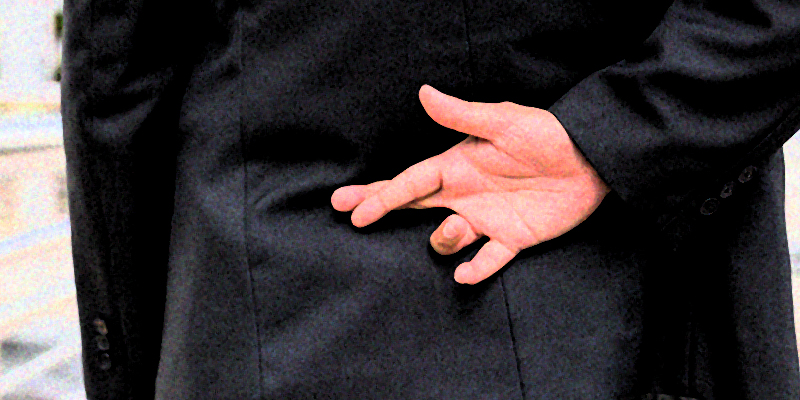The best one-two scam in American Literature comes from Mark Twain. First, Tom Sawyer tricks his peers into paying for the privilege of whitewashing a fence; then, using the proceeds, Tom buys up the tickets that his classmates have earned by memorizing bible verses, and presents them to his teacher at an opportune time, kicking off a bible-awarding ceremony which almost everyone watching understands to be a sham. The episode lays out an important principle of con artistry in American Literature: it is easier to earn money than respect. Do whatever you need to do in order to get rich, and use those riches to buy you a place in society.
The purchase of esteem is the unavoidable dark side of the American Dream, or the romantic ideal that through hard work, anyone can become anything. It’s romanticized and novelized with good reason. In this ideal of personal merit overcoming family circumstance, of hard work overcoming hardship, we have fertile ground for literature to do what literature does best: showcase the indomitable human spirit as it triumphs over whatever obstacles may be thrown in its way. This celebration of merit and boundless will is the foundation for both the American Dream and the Great American Novel, but its inevitable culmination is the question of whether there are any boundaries that ought not to be crossed and who gets to decide just what they are.
This line dividing picaresque hero from villain is a vague one, and the manner in which it is approached or transgressed is what distinguishes American literature from its English predecessors and contemporaries. Consider, for instance, Leonard Bast of Forster’s Howards End, whose class-transcending affair shines a light on the injustice of rigid social conventions and tries (without much success) to shift that boundary. Or take Charlotte Bronte’s Jane Eyre, whose titular heroine makes Rochester see past a humble origin story and appreciate her personal attributes, only to delay consummation until he is deemed legally eligible by circumstance. It’s a lovely, honest triumph of merit and integrity overcoming prevalent social dogma, but it is also a distinctly un-American method by which to make such triumph happen. Had F. Scott Fitzgerald instead been the one to write The Great Eyre, we would have seen Juliette Ecclestone emerge as a mysterious and wealthy heiress who pulls Rochester away and leaves Thornfield Hall to Antoinette upstairs. James Gatz doesn’t try to change the convention that prevents a poor boy from being with a rich young woman, he changes the poor boy into a rich man with a rich name. Tom Sawyer doesn’t try to dismantle the convention of Sunday School, he cons his way into being (briefly) regarded as a bible scholar without ever having to crack the thing open.
The heroes of English literature rage against the obstacles that impede a person of their status; the heroes of American literature circumvent those obstacles by changing the status of their person. In this sense, the conman is the American Dreamer who takes a step too far against one of the most formidable obstacles one can face: reality.
If one can, through present action, overcome the reality of the past, then one can possibly give shape to the reality of the future. Without the ability to travel back in time, the only practicable method by which one can change their past is to lie about it. And really, why shouldn’t a character lie about their past? If the American Dream relies on a meritocratic commitment to equal opportunity as its foundation, what could possibly be more at odds with that dream than an adherence to the uncontrollable and irrelevant facts of one’s birth or one’s present circumstance? Even the past of yesterday is unchangeable to the character in the present, and so the pursuit of equal opportunity—if updated moment to moment—allows for and even encourages distortions of one’s past if doing so offers better footing for the present. The rule of history and of reality can be draconian, and while the heroes of foreign literature might waste away raging against that tyranny, it’s up to the heroes of American literature to conjure a reality that better suits their needs. In this way, they transform convention from an obstacle into a springboard, and then transform themselves into whatever thing that springboard launches farthest.
It’s what Jay Gatsby does, it’s what Tom Sawyer does, and it’s what the orphaned Morfawitz children do when they arrive penniless in New York after fleeing Nazi Germany. The youngest daughter, Hadassah, takes the reins and uses the established gossip network of the Park Avenue Synagogue high society like a launching pad, spreading stories (all lies) of an illustrious past in order to secure desirable marriages for her siblings. Based on the gods of Ovid’s Metamorphoses, the Morfawitz family climbs the ranks of society fast, barreling through any laws, taboos or people that get in their way. And yet, a compass that points east still tells you which way north is; miscalibrated as it might be, there is a consistency and an orientation to the Morfawitz clan’s deeds: straight up, to that New York City skyline where they dream and then build their own Mount Olympus, which takes the form of ten penthouse floors atop the Tower Morfawitz. Their impoverished childhood spent running for their lives has left them with a value system which values, above all else, persistence, security, and survival of the family. While this may not justify their many cruelties and misdeeds, it does explain them, and makes them task-oriented characters hellbent on achieving a goal.
The Olympians, from whom the Morfawitz family are drawn, are well suited to the American Novel and the American Dream. Being deities, they only ever answer to themselves, which allows them—despite their many flaws—to retain a moral consistency which keeps them from being unrelatable. For only one thing is demanded of a character in American literature if they are going to remain sympathetic; no matter how disjointed their own ethics are from the popular ethics of the day, the characters cannot violate their own moral code. As Tom Sawyer puts it, “Right is right, and wrong is wrong, and a body ain’t got no business doing wrong when he ain’t ignorant and knows better.” This, from a boy who spends most of his time conning his friends and running afoul of the law, is perhaps the greatest expression of individualism that American Literature has to offer. It suggests that not only does the American Dreamer, and the conman in American Literature, choose his own story, his own path and even his own name—he also chooses his own god and the moral code to which he answers.
***


















